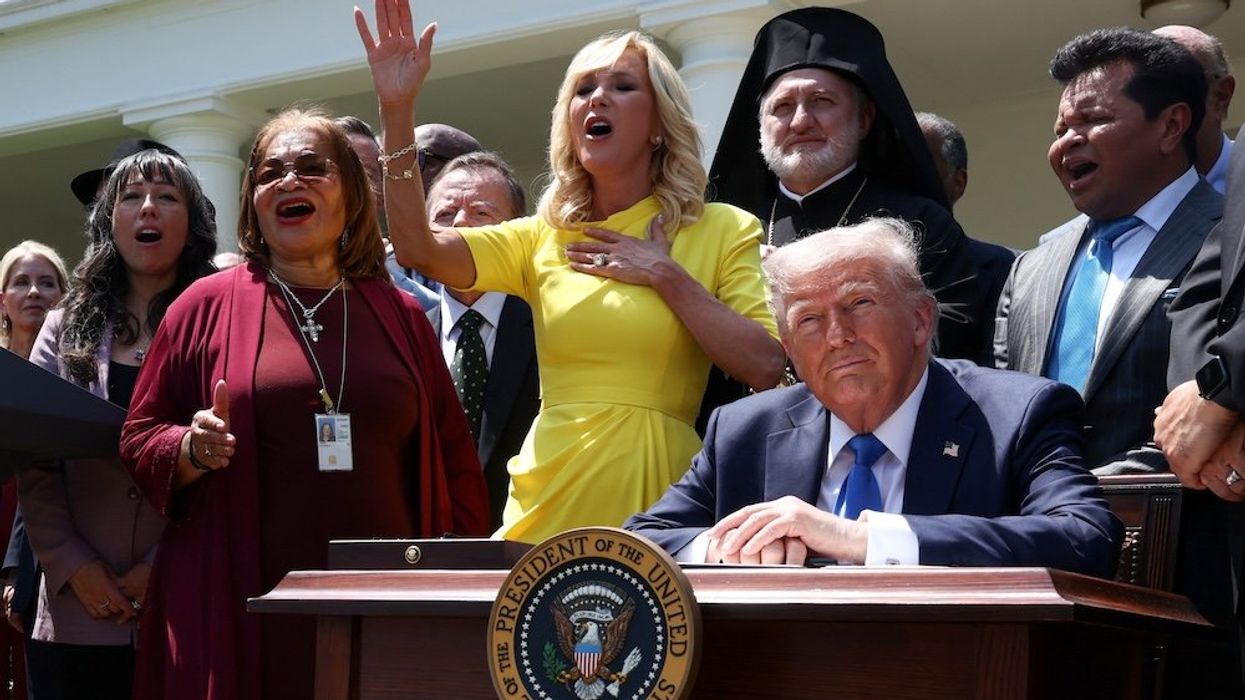A longtime Episcopalian priest is accusing President Donald Trump of exploiting Christianity to execute his own political agenda — and is giving Christians a clear choice going forward.
In a recent essay for Religion News Service, the Very Rev. Michael W. DeLashmutt argued that despite Trump embracing Christianity and the Bible as president, he has driven a wedge between different groups of Christians that don't fit into his unique framework. He added that the president has insisted that his "nationalist, triumphalist, often exclusionary" brand of Christianity puts him at odds with a significant population of fellow believers.
"The Christianity most visibly aligned with Trumpism is one that emphasizes strength, victory and cultural dominance," DeLashmutt wrote. "It is a Christianity that views theological complexity with suspicion and prophetic dissent as disloyalty, and it replaces the messy, demanding ethics of the Sermon on the Mount with a simpler narrative of winning and losing."
READ MORE: 'Grow up': Catholics revolt after Trump insists they 'loved' image of him as pope
DeLashmutt compared Trump to the Roman emperor Constantine, who he noted also used a strict interpretation of Christianity to accomplish his goal of getting various territories under his thumb. And he observed that, like Trump, Constantine's belief system was contradictory with the "diverse, decentralized and often theologically fragmented" groups of Christians at the time. When Constantine convened the Council of Nicaea in 325 C.E., it was done not for religious reasons but for "imperial stability."
"For the first time, Christian belief was not only about faithfulness to Christ; it became a matter of loyalty to the emperor. Heresy was no longer just a spiritual wound in the body of Christ — it became a political threat to imperial order," he wrote. "Christianity was disciplined into a form more useful for holding an empire together. Today, a similar phenomenon is unfolding."
The Episcopalian priest observed that early Christians knew that the Roman Empire's version of Christianity was at odds with their own, and that some were "willing to be misunderstood, marginalized, even martyred" in order to stop their faith from being "co-opted by imperial power." He warned that Christians once again allowing their faith to be used as a "tool of political mobilization" were taking a "dangerous" risk.
"Constantine’s legacy is complex. Without him, Christianity might never have survived to become the global faith it is today. But the cost of that survival was real: a faith reshaped to serve the needs of empire," DeLashmutt wrote. "Christians today must ask again: Will we follow a Christ who reigns from a cross or one who crowns emperors to secure his own power?"
READ MORE: CNN data analyst reveals real reason Trump stopped talking about running for a third term
Click here to read DeLashmutt's full essay in Religion News Service.


